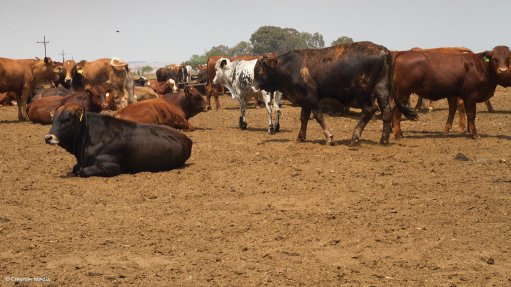First dual-apprenticeship training pilots kick off
The Department of Higher Education and Training’s (DHET’s) three year project to pilot the dual apprenticeship training system in South Africa based on the Swiss-German-Austrian apprentice training model, which kicked off early this year, is now set to expand its initial scope to colleges and companies in Ekurhuleni and Rustenburg.
The project was initially sparked by a visit in May 2011 to Switzerland by a high-level delegation from the DHET led by Minister Blade Nzimande, who was also accompanied by Swiss-South African Cooperation Initiative (SSACI) CEO Ken Duncan. SSACI is a public-private development partnership between the Swiss government’s international agency for development and cooperation and Swiss companies trading in South Africa. It plays a role in opening new pathways to employment for young South Africans through innovation within the national skills development system.
The key element of the well-known dual system is a model where apprentices are indentured to companies and then undergo their trade training on an alternating basis by attending theory classes at a vocational college for two or three days a week, with workplace training in the company for the remaining days of the week.
The benefits are generally greater than those of the traditional South African block-release system, where the theoretical and practical training takes place in isolation from each other. The dual system offers immediate integration of these two facets of training, with each element reinforcing the other.
The first technical and vocational education and training colleges (TVET colleges were formerly called further education and training colleges) selected for the pilot project are West Coast College for welding training and the Port Elizabeth College for mechatronics.
As with every pilot project, teething problems have been reported, owign to the complexity of introducing a new system with different timeframes and different expectations. Employers, colleges, sector education and training authorities (Setas) and learners are all at different stages of readiness and work is still required to ensure that there is a shared understanding of the training processes and the intended outcomes.
Detailed planning was undertaken to select the colleges to offer the theoretical component of the training based on a specific trade offering and also to identify and orientate the companies to participate. The final and key element was the selection of high-calibre youngsters studying towards the National Certificate (Vocational) programme at college to undergo dual-system training.
The administrative bedrock of the programme has included management arrangements and agreements on the funding model, which is based on the recently finalised national funding model for artisan training. It has also required an adaptation of the curricula to support the dual system implementation.
SSACI’s Duncan is responsible for overall project management including liaison with the DHET and the participating Setas, which currently include the the Manufacturing, Engineering and Related Services Sector Education and Training Authority, the Chemical Industries Education and Training Authority and the Fibre Processing and Manufacturing Education and Training Authority.
Duncan is sanguine about the challenges experienced to date in terms of the readiness of both the colleges and the employers to pilot the new model. “It is still early days, but we have already received good data on employer and learner satisfaction from the two existing sites at the West Coast College and the Port Elizabeth College. It is also encouraging that we are about to expand the pilot to two new sites – the first one at Ekurhuleni colleges and nearby companies and the second one at Orbit College in Rustenburg and companies in the surrounding area.”
Both of the new pilot sites will focus on the training of future electricians.
Workplaces have a key role to play by providing a strong learning environment to enable trainees to develop technical skills using modern equipment to gain real world experience in skills such as teamwork, communication and negotiation.
The timing of the dual-apprentice pilot project is views as opportune since attention at present is focused on the national drive for South Africa to become internationally competitive as well as the skills shortages that hobble economic growth, concern around high youth unemployment and the imperative to revive the manufacturing sector.
The project is also closely aligned with the DHET’s drive to expand high quality artisan training underscored by the recent declaration by the department of the ‘Decade of the Artisan’.
The pilot project has been designed to ensure the active integration of institutional training and authentic workplace experience so the training has direct and immediate relevance to the needs of industry and the economy.
A comment by an ambitious and enthusiastic project participant during a feedback session speaks volumes: “On the project I am exposed to the real world of work, I benefit from working under the guidance of mentors, networking and sharing ideas with different people in the workplace. I’m more assured now that I have made a good career choice.”
Global economic competition requires a workforce with a range of mid-level trade, technical and professional skills and the dual-apprenticeship pilot project with its innovative approach is expected to make an important contribution to meeting that objective.
Article Enquiry
Email Article
Save Article
Feedback
To advertise email advertising@creamermedia.co.za or click here
Comments
Press Office
Announcements
What's On
Subscribe to improve your user experience...
Option 1 (equivalent of R125 a month):
Receive a weekly copy of Creamer Media's Engineering News & Mining Weekly magazine
(print copy for those in South Africa and e-magazine for those outside of South Africa)
Receive daily email newsletters
Access to full search results
Access archive of magazine back copies
Access to Projects in Progress
Access to ONE Research Report of your choice in PDF format
Option 2 (equivalent of R375 a month):
All benefits from Option 1
PLUS
Access to Creamer Media's Research Channel Africa for ALL Research Reports, in PDF format, on various industrial and mining sectors
including Electricity; Water; Energy Transition; Hydrogen; Roads, Rail and Ports; Coal; Gold; Platinum; Battery Metals; etc.
Already a subscriber?
Forgotten your password?
Receive weekly copy of Creamer Media's Engineering News & Mining Weekly magazine (print copy for those in South Africa and e-magazine for those outside of South Africa)
➕
Recieve daily email newsletters
➕
Access to full search results
➕
Access archive of magazine back copies
➕
Access to Projects in Progress
➕
Access to ONE Research Report of your choice in PDF format
RESEARCH CHANNEL AFRICA
R4500 (equivalent of R375 a month)
SUBSCRIBEAll benefits from Option 1
➕
Access to Creamer Media's Research Channel Africa for ALL Research Reports on various industrial and mining sectors, in PDF format, including on:
Electricity
➕
Water
➕
Energy Transition
➕
Hydrogen
➕
Roads, Rail and Ports
➕
Coal
➕
Gold
➕
Platinum
➕
Battery Metals
➕
etc.
Receive all benefits from Option 1 or Option 2 delivered to numerous people at your company
➕
Multiple User names and Passwords for simultaneous log-ins
➕
Intranet integration access to all in your organisation


















